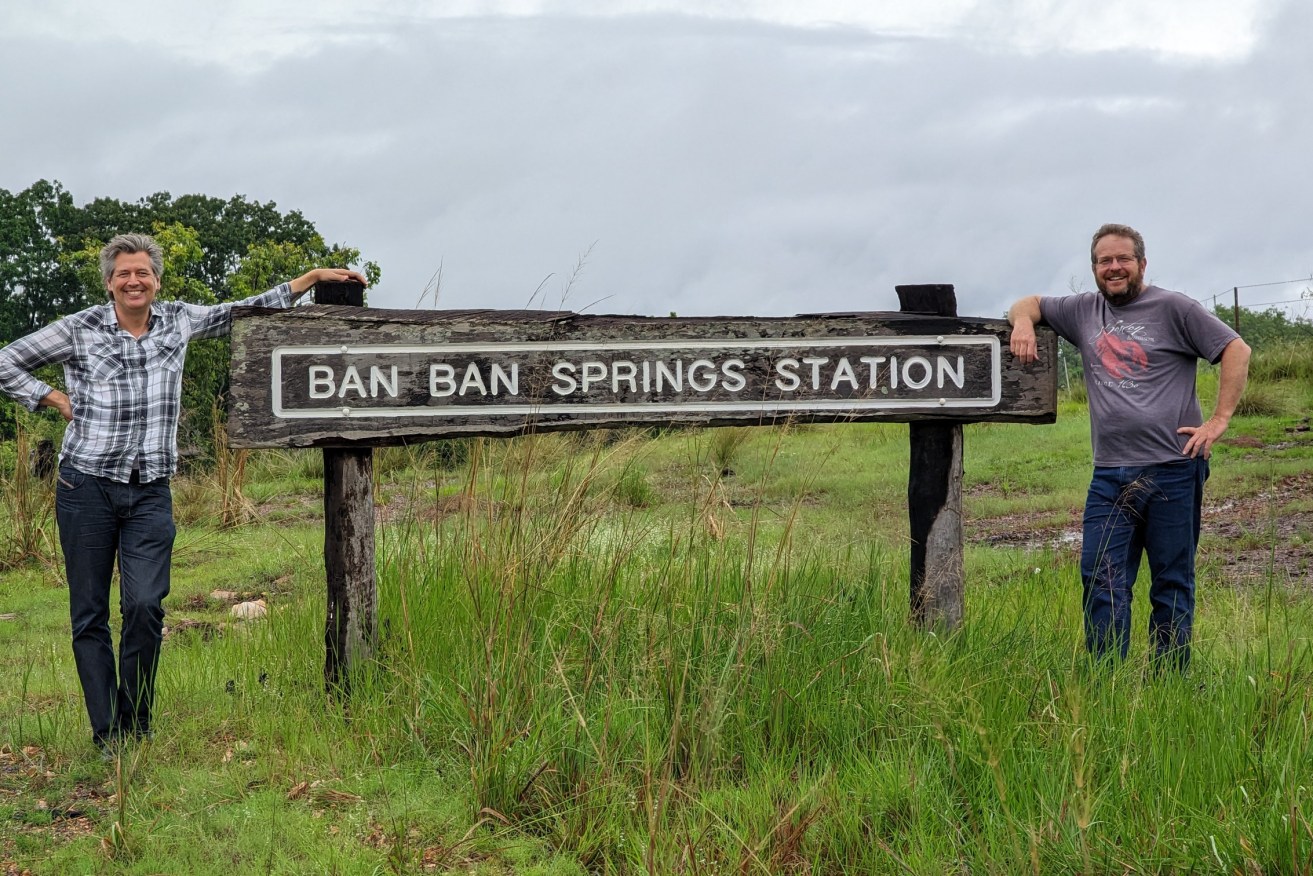Wyatt’s earth: Meet Qld’s newest beef baron and carbon crusader
A Queensland Government scheme that pays landholders for the carbon they save has partly driven the desire to build an enormous new beef enterprise on Cape York Peninsula.


Corporate Carbon founder Matthew Warnken and managing director Gary Wyatt at the company's Ban Ban Springs property, Northern Territory.
The new owners of Holroyd River, Crystalvale and Yarraden cattle stations, known as the Holroyd aggregation 150 kilometres southwest of Coen in the state’s far north, have a baseline target to save 500,000 tonnes of carbon a year.
That’s equivalent to taking more than 110,000 cars off the road every year.
The calculation also includes Watson River cattle station south of Weipa which the Corporate Carbon company bought last September, taking the combined aggregation to 522,000 hectares and generating a new beef and carbon farming enterprise to be named Paniri Agricultural Co.
The newest acquisition will form more than a third of the parent company’s broader portfolio of properties in Australia totalling 1.3 million hectares.
Corporate Carbon managing director and Paniri chairman Gary Wyatt said the Queensland Government’s Land Restoration Fund played a big role in driving the investment in Queensland.
“Queensland would have to be the most supportive in the country when it comes to carbon projects,” he said.
Credits from the carbon saved, Wyatt said, would be primarily sold to private buyers operating in the Australian market and government supported compliance funds.
“We think over time we will be able to grow our carbon savings far higher than our initial target,” he told InQueensland.
“Australia is an emitter of 500 million tonnes of carbon a year and we’d like to be making a material contribution to reducing that.”
Wyatt said one of their first carbon abatement projects would see a reduction in frequency and intensity of wildfires by conducting controlled burning to protect trees and construct fire breaks.
The livestock operation is aiming to have extensive solar power and a feeding programme to lower cattle methane emissions using asparagopsis enzyme supplements derived from seaweed.
Wyatt’s ambitions come as the beef industry globally comes under pressure to drastically lower its methane emissions and carbon farming in Australia faces a negative backlash for “locking up” productive land that will contribute to declining economic activity in rural and regional communities.
Wyatt said he believed that both enterprises could co-exist and prove mutually supportive.
“It’s our view that agriculture and the environment can exist in balance, where our approach will reduce emissions while improving agricultural production – promoting sustainability by increasing biodiversity and improving the soil, pastures, natural vegetation and ecosystems,” he said.
“In taking the approach to blend the methodologies of our carbon projects with agriculture, it’s our aim to contribute positively to the challenges facing the ag sector, in particular the cattle industry and its environmental footprint.
“It’s an important challenge and we don’t have all the answers, but believe the co-benefits of the dual activities could help secure the future of agriculture and set us up to become a leading natural asset manager.”








